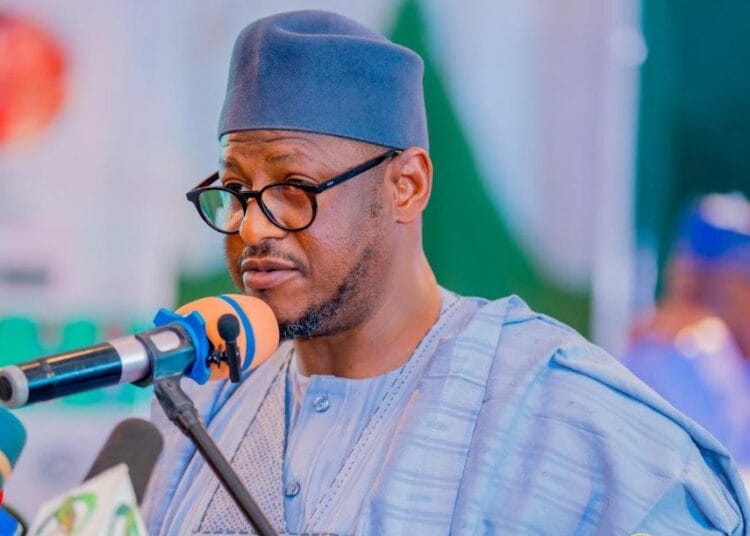When all is said and done, said the great American statesman, Abraham Lincoln, it is not the years in our lives that count. It is the life in our years. For Kings and for paupers alike, a 50th birthday marks a pivotal milestone in one’s life, symbolizing half a century of experiences, of learning, and, hopefully, of growth. Fifty is a time when individuals often pause to reflect on their journey so far, cherish the memories and the wisdom they’ve garnered and gained over the years. This age represents a bridge between the youthful energy of earlier decades and the (hopefully elevated) perspective that comes with maturity. Celebrating a 50th birthday is not just about marking the passage of time; it is an opportunity to honor one’s achievements (whether they be earth-shaking or modest), to embrace the present, and to look forward to the future with a renewed sense of purpose.
As a man, Oba Adeyeye Enitan Ogunwusi (Ọjájá II) CFR, Olofin Adimula, the 51st Ooni of Ife, must now be reflecting on the past half-century of his eventful life. And as a King, whose destiny is inextricably tied to that of his people, he must now be pondering the essence and impact of his stewardship so far, and what the future holds for his people – even as tributes and encomiums continue to flood his palace from the high and mighty in the land, as well as from his subjects from all walks of life at home or abroad.
In his tribute, the Nigerian President, Asiwaju Bola Tinubu spoke for millions of his countrymen when he extolled the Ooni’s leadership and maturity since ascending the throne at the relatively youthful age of 41. The revered monarch, he said, has played an extraordinary role in preserving the rich traditions of the Yoruba people from his royal perch. The President also acknowledged Oba Ogunwusi’s deep sense of duty, wisdom and knowledge as he fulfils his extensive responsibilities as the spiritual leader of the Yoruba people. As Co-Chairman of the National Council of Traditional Rulers of Nigeria, Tinubu said, the Ooni is a unifying figure and a passionate advocate for religious tolerance, peace, and the unification of the Nigerian nation. He commended Oba Ogunwusi’s tireless advocacy for women and youth empowerment through education and entrepreneurship, saying that he exemplified the traditional Yoruba values of humility and open-handed generosity.
Other prominent Nigerians echoed the President’s sentiments, as they wished the genial and easy-going Ooni good health and a long, glorious reign.
Indeed, not many will argue with President Tinubu’s assessment of the Ooni’s essential character and stewardship. Since his ascention to the throne in 2015 (on the passing of his illustrious predecessor, Oba Okunade Sijuwade, Olubuse II, who had reigned since 1980), Oba Ogunwusi has proved a worthy successor to Oba Sijuwade, who had brought to that ancient throne a modernising energy on account of his education, exposure, cosmopolitan character and entrepreneurial spirit. An accountant by training, and a tech-savvy member of our fast-paced age who knows his way around social media, Ogunwusi has also drawn comparisons to that other great lover and promoter of education and enterprise, the late Oba of Lagos, His Royal Majesty, Adeyinka Oyekan, whom a biographer described as ‘the epitome of the Platonic ideal of a philosopher-king – ie a person who combines deep reflection and decisive action in equal measure, which is the combination of attributes that all progressive societies from the dawn of time have sought in their leaders and in those who seek to lead.’
Even more importantly, as alluded to in President Tinubu’s message, the Ooni, since his ascension, has not only sought to build bridges across the ethno-cultural divides of Nigeria, but to embody and celebrate the country’s diversity – which he sees as a source of strength, rather than a weakness and a potential source of conflict. His response to the simmering rivalry between his Yoruba kinsmen and the Igbo ethnic nationality, for example, has been to portray them as two peas in the same pod; as the current Chancellor at the University of Nigeria, Nsukka (a platform he has used to burnish his nationalistic credentials in no small way) he has repeatedly challenged historians and other academics on the need for more robust research to uncover the common origins of these two nationalities – and to determine the evolutionary juncture of their departure, the better to erect the building-blocks of mutual understanding and mutually-reinforcing progress
In that sense, the Oba is a statesman; he has skilfully managed to transcend the limitations of his role as traditional ruler, a role circumscribed by the Nigerian Constitution to purely ceremonial, advisory and peace-making duties.

Adeleke Damilola (ACTION) is a versatile content writer with expertise in news writing and a seasoned media professional and broadcast specialist. Currently serving as News Editor for DNews Info, Damilola is also the CEO of the ACTION brand, committed to shaping lives and establishing a legacy of excellence for present and future generations.
Discover more from DnewsInfo
Subscribe to get the latest posts sent to your email.




